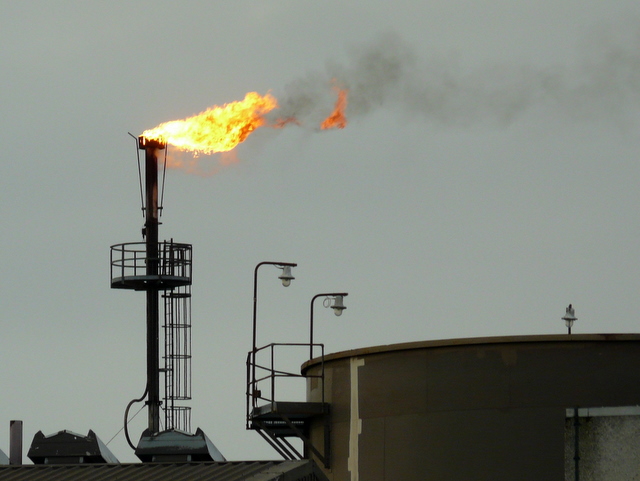No longer if, but how: European efforts are about to translate into a blockade of Russian oil imports, to be included in the next sanctions package. Meanwhile, the Kremlin struggles to place the product – and NASA satellites photograph the decline in production
–
The European Union is officially moving towards an embargo on Russian oil. The Commission is working around the reluctance of some Member States (first of all in Germany) to ensure that the next sanctions package, the sixth, will “certainly” contain a measure to limit oil imports from Moscow, such as confirmed by a Commission official on Wednesday. Net of an adjustment period, the impact on the EU is second Bruegel it is fully manageable.
Berlin has already indicated that it intends to stop Russian oil supplies by the end of the year; in Brussels they are looking for ways to speed up and reduce the costs of the maneuver. A Commission source revealed a Reuters that the team led by Ursula von der Leyen is in dialogue with oil producing nations to facilitate the organization of supply agreements, fast and at a low price, at the national level. At the same time, it is preparing an impact assessment on the Russian oil embargo, to be provided to member countries perhaps as early as next week.
The biggest opposition to the total blockade comes from Germany, which imported a third of its crude oil from Russia in 2021. But according to the rumors obtained by Reuters, dropping the Berlin veto would also lead the other opposing states to change their minds. So we see a compromise: to extend the phase-out period for Russian oil imports, as happened with coal (it was Germany that extended the tolerance window from three to four months). Von der Leyen spoke to picture on sunday of “intelligent mechanisms” to achieve the inclusion of oil in the package of sanctions. We talk also to differentiate the different types of petroleum products.
It is difficult to underestimate the extent of the damage an oil embargo would cause to the Kremlin, as it is its largest source of revenue alongside gas, and considering that the EU it absorbs half of Russian exports. Indeed, several Western companies and have not already unilaterally stopped trading with Russia. The mere prospect of a European blockade has prompted operators to be cautious, so much so that today Russian oil has much less market – and Moscow must offer it at bargain prices to those willing to buy it. For this reason, according to the Commission, the Kremlin “is already losing money”.
The impact of “spontaneous” sanctions is already measurable without going through the official Russian data, subject to the deformation of the Kremlin, which is doing everything to hide the damage suffered by the Russian economy. But Vladimir Putin cannot hide the behavior of its oil companies from the eyes of satellites, which can reveal that (almost two months after the invasion) Moscow is “succumbing” to the blows of government sanctions and the self-restraints of Western companies .
Using the photos of NASA, the analysts of OilX they measured the brightness of the flames produced in the oil fields of Siberia. These data, combined with anecdotal information from market participants and rumors filtered by Russian officials, have led Bloomberg to estimate that the average Russian oil production has fallen to just over 10 million barrels per day compared to 11 in March. And analysts expect the decline to continue.
The incoming sanctions will not only affect oil. According to rumors, a blockade of Russian nuclear fuel is also expected, on which several countries in Eastern Europe depend, on a German proposal. The exclusion of two other banks, Sberbank and Gazpromneft, from the Swift international payment system (a move that would leave only Gazprombank “connected” to the system), the suspension of Russian visas and the closure of other Russian broadcasters, including RTR-Planeta and R24. Meanwhile, the date of May 4th is approaching, which probably will score the de facto default of Russia.
–


